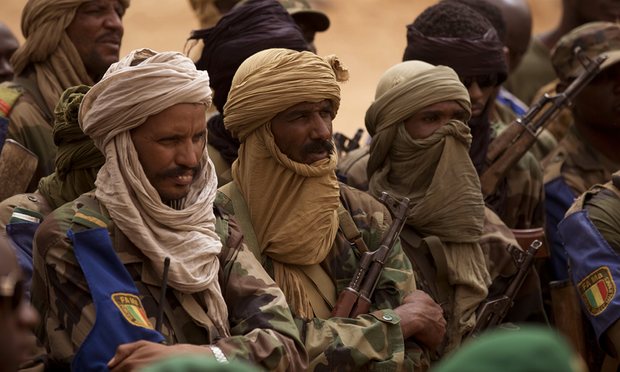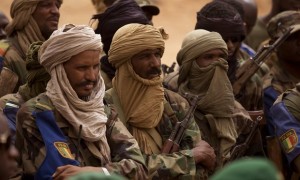Reuters
By Tiemoko Diallo
Mali’s main Tuareg separatist factions said on Saturday they would boycott talks with the government next week on implementing a nearly 2-year-old peace accord that has been riven by quarreling.
The pact signed in 2015 was meant to draw a line under the conflict that pitted nomadic Tuaregs in the desert north against a government seated in the south and which has destabilised Mali, turning it into a launch pad for global jihadi groups.
But implementing the agreement has been held up by bickering, while jihadists have exploited the security vacuum to step up attacks.
“The CMA and Platform declare solemnly that they cannot take part in this conference,” a statement by the Tuareg rebels said, explaining that it was not sufficiently inclusive and that they were not consulted about the date when it was fixed.
“We cannot take part in a conference which, far from uniting, risks being divisive.”
After months of delays and arguments, there have been some signs of progress in recent weeks with the return of state authority to some cities from which it had been absent since the Tuareg uprising began in 2012.
Joint patrols staffed by fighters from the various armed factions and the Malian security forces have also helped restore confidence.
But tensions remain high. Earlier this month, armed groups surrounded Timbuktu, once a tourist trap because of its fabled history of gilded Islamic empires that grew rich on trade connecting Africa’s interior with its Mediterranean coast.
The armed groups were opposed to the return of state authority to the city, and no agreement has yet been reached to allow it to go ahead.
Most government posts have been empty since the Tuaregs and desert jihadists took over northern Mali, before French forces intervened to push them back in 2013, but a breakthrough last month allowed authority to be restored to several cities.
Despite continued French troop deployments, a U.N. peacekeeping mission and years of peace talks, Mali remains beset by banditry, unrest and ethnic strife.
(Writing by Tim Cocks; Editing by Mark Potter)








